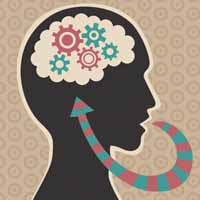Ttreatments for addiction usually take one of several forms. Either they’re an outright attempt to immunize people against addiction or otherwise block the effects of the drug, a safer version of the substance used to abate cravings, or a substance used specifically to reduce the impact of withdrawal. However, new research published in the journal Nature suggests a brand new mechanism for treating people addicted to substances such as alcohol: simply make them “forget” that they’re addicted. This isn’t quite as sci-fi as it sounds, though, and the same technique could also hold promise for those suffering from conditions such as post-traumatic stress disorder. Finding out more about the study helps you understand how exactly it’s possible to “forget” an addiction. Addiction as a Memory It could be argued that addiction is actually a memory since people take substances to “solve” problems in their lives (e.g., as a method of easing stress or alleviating depression). If looked at in this way, the individual first takes the substance and stores that experience as a memory. Each subsequent encounter with the same substance (e.g., being offered a drink at a social event) evokes that stored memory, so if it has positive connotations the individual will be more likely to consume the substance again. Over time, a physical addiction builds up and alters the individual’s neurological make-up, but ultimately the addiction could be thought of as rooted in memory. Memory Retrieval If it is true that addiction can be thought of as related to memory, then the process of the retrieval of those memories could be an important target for addiction treatments. The researchers use the analogy of a memory being like a file in a library archive. When it isn’t being used, it’s under the protection of the building itself and safely stored away. However, when somebody checks out the file (accesses the memory) it becomes vulnerable because it’s away from its safe compartment. In essence, it’s possible to lose a page or so while it’s out of safe storage. The Study This analogy reveals that the window of opportunity for disrupting memories is when the memory has been “reactivated” (moved out of storage). The researchers focused their efforts on a single neural pathway—thought to be the key player in the process—and ultimately disrupt the process of “re-filing” the memory. In addition to drug addiction, the troubling memories that cause PTSD could be helped if this pathway was effectively disrupted. The research looked at rats, which is common in addiction research due to the similarities in the brain’s addiction centers between rats and humans. The rats were given a choice between water and a mixture of water and alcohol for seven weeks, and it’s assumed that the alcohol mixture will taste pretty unappealing to rats. Despite this, they soon started to consume alcohol regularly (to above legal driving blood alcohol levels), despite having to press a lever to get it. After these budding alcoholic rats had time to develop their addictions, the alcohol was taken away for 10 days. After this time, the rats were given a small drop of alcohol to encourage them to access their memories of drinking. Half of the rats then received a dose of rapamycin, which inhibits the neural pathway assumed to be vital to the process of reactivating and re-filing memories. The results show that the rats who’d consumed the drug were significantly less likely to consume alcohol when given the opportunity to do so in the future. What Does It Mean? It does, in a sense, mean that the rats “forgot” their predisposition toward alcohol addiction and that this could have potential for the treatment of alcoholism and other addictions in humans, too. It’s particularly encouraging because it apparently doesn’t have an effect on their consumption of other substances, with the rats being perfectly happy to drink sugar-water after the treatment. In fact, the main thing holding the treatment back at the moment is that the researchers aren’t exactly sure how the drug actually works. They assume it must be the neural pathway that relates the smell and taste of alcohol to the feeling of consuming it, but this isn’t certain. The effect of essentially erasing the pleasurable memories of drinking appears to reduce the likelihood that people will continue to drink. Although the researchers don’t intend to take the same study into human trials, other groups will undoubtedly take up the task. As is always the case with addiction treatments, however, psychological interventions are always going to form the core of treatment. Taking the individual who drinks to ease his stress as an example, the drug could help him forget that alcohol might produce the superficial effect he’s looking for, but it wouldn’t stop him from dealing with his stress unhealthily. It will always be an addition to treatment, not a replacement.

